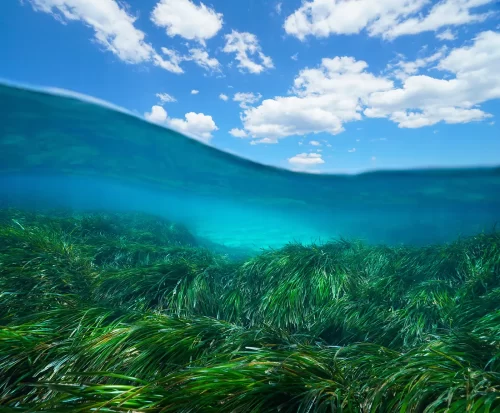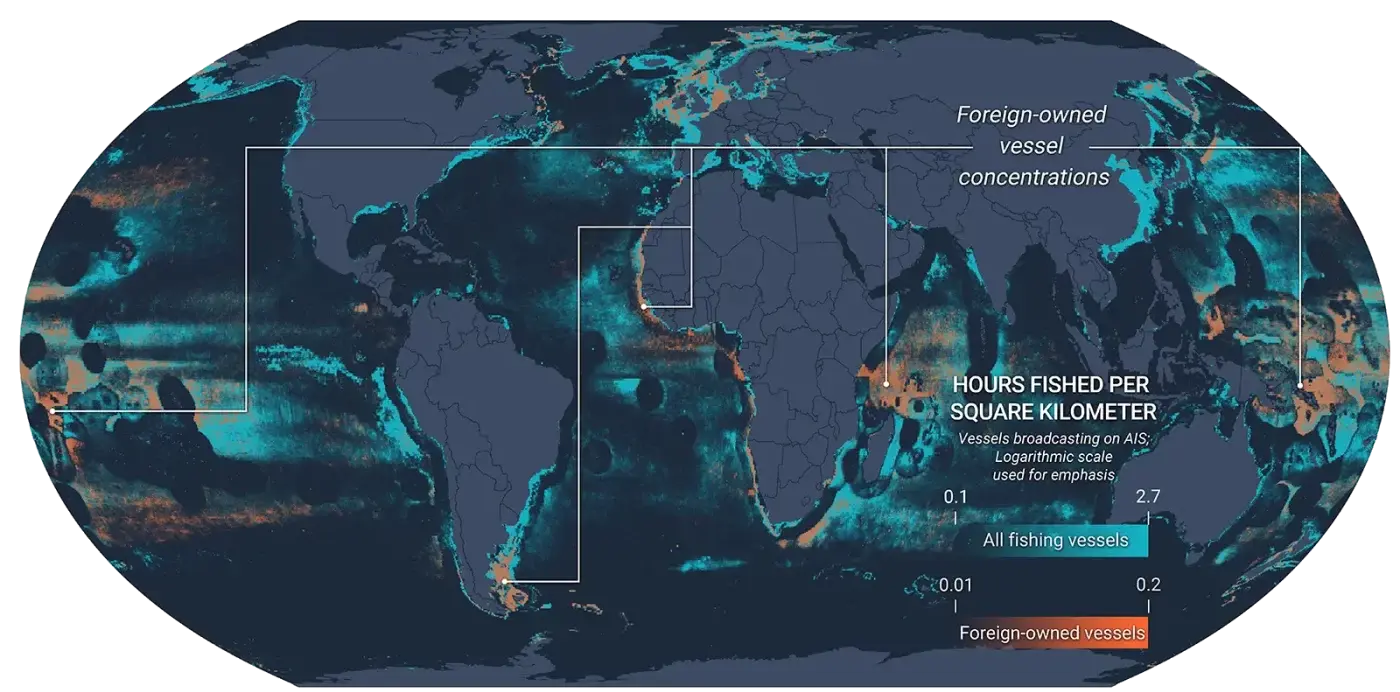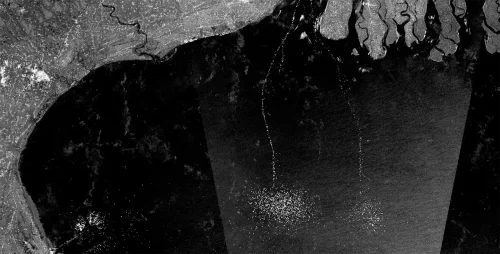
ⓒ Ben Dilley
The Issue
Every commercial fishing vessel is registered to and flies the flag of a particular State, but it’s not necessarily the State that it originates from. There’s a whole nexus of actors involved in international fishing whereby a vessel can be flagged to one country, its owner(s) reside in another, while operations are carried out in a third nation’s waters. To make matters even more confusing, vessel owners can change a ship’s country of registration—a practice known as reflagging.
While there can be legitimate reasons to change a vessel’s identity or flag State, some operators use reflagging as a tactic to avoid oversight, particularly when it comes to illegal, unregulated and unreported (IUU) fishing. Foreign vessel owners might also switch to “flags of convenience”—countries that offer registration without nationality requirements and whose administrative costs and regulatory burdens are often less demanding.
Currently, public information on vessel registration is limited, fragmented and inconsistent. It’s all too easy for vessels involved in IUU fishing to escape detection by simply switching their identity.
Our Work
Together with researchers from Duke University and Stockholm Resilience Centre, we combined a decade’s worth of satellite tracking data for 35,000 commercial fishing and support vessels with information from more than 40 public vessel registries. This enabled us to reconstruct these vessels’ histories and their changing identities.
Our research, “Tracking Elusive and Shifting Identities of the Global Fishing Fleet,” found that close to one-fifth of fishing on the high seas is carried out by vessels that are either internationally unregulated or not publicly authorized. The largest concentrations of these ships operate in the southwest Atlantic Ocean and the western Indian Ocean.
A total of 116 States were involved in reflagging, but just 20 of them were responsible for about 80 percent of cases. Most reflagging happens in only a handful of ports in Asia, Latin America, Africa and the Pacific Islands—though the port may have no connection to the country the vessel is switching its flag to or from.
By making this information publicly available, we hope to help both flag States and port States identify, investigate and clamp down on illicit fishing and other unscrupulous behavior. The data, which we’ll update periodically, is intended to complement ongoing efforts to increase transparency in vessel registration, including the Food and Agriculture Organization of the United Nations’ Global Record of Fishing Vessels, Refrigerated Transport Vessels and Supply Vessels.
Fishing effort by foreign-owned fishing vessels, 2012-2020

“Knowing the identities of vessels fishing the high seas is critical for uncovering the connection between the potential IUU fishing behavior and vessels that repeatedly change their name, flag State or registered owner. This analysis could be used to help monitor fisheries more effectively and for accountability in the use and protection of marine biodiversity.”
Gabrielle Carmine,Nicholas School of the Environment, Duke University

